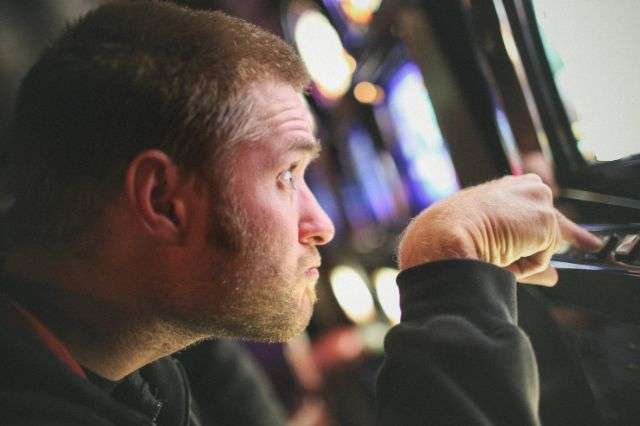Gambling may be a thrilling, occasional activity or, for some lucky few, a method of winning an elusive jackpot. Gamblers, unfortunately, may become obsessed with pulling the one-armed bandit or playing the ponies. They might discover themselves in the throes of a gambling addiction that might destroy them physically, psychologically, socially, and financially.
According to the American Gaming Association, as many as 1% of people in America might be pathological gamblers. If you fall in this category, there are treatment programs available for people suffering from a gambling addiction that will make all the difference in your life. Pacific Bay Recovery is available to help and we want to support you while you make the critical journey back to a life free from addiction.
Is Gambling Addiction Treatable?
Psychological illnesses, like anorexia or obsessive-compulsive disorder, do not have an endpoint where they’re declared cured. So, is gambling addiction treatable? Unfortunately, the answer is no. However, like any other type of addiction, actionable steps may be taken to break the hold that gambling has over your life or the life of your family member. Whether you continuously gamble and can’t stop or go on gambling binges that get out of hand, the time to get help is right now!
Steps on How to Restart your Life
Wondering how to stop gambling addiction and restart your life? Well, now that you’ve recognized that you have a problem, it is possible to get help from a support group. They’re organizations that are maintained by those who have similar pasts and experiences. Although they lack professional interventions, they’re free to try in online chat rooms or in person.
Avoid Gambling Temptation
Gambling is actually a temptation; however, seeing it as an addiction is a substantial step because it enables you to use skills from relapse prevention and addiction recovery. For somebody in recovery, avoiding activities, places, and people connected with gambling will help them to avoid a setback. In avoiding such triggers, it is possible to avoid the feelings and thoughts encouraging gambling.
Therefore, if passing by a casino after you get off work triggers thoughts of gambling, take another way home. If viewing sports makes you have the urge to bet on it, consider viewing something else. Allow your spouse to handle your checkbook and cut up your credit cards.
It might seem inconvenient, but just like a person who has a problem with drinking shouldn’t enter a bar, you must identify and avoid all triggers. Work with a family member on that list of triggers and figure out methods of avoiding the temptations to decrease your gambling risk.
Figure Out Alternatives to Gambling
Avoiding triggers and being distracting while going through cravings are good ways to handle gambling; however, to improve your state, you will have to figure out healthy gambling alternatives. In replacing unhealthy behaviors with healthy ones, you’ll shift your focus away from the unhealthy and towards the healthy.
Healthy alternatives to gambling include:
- Traveling
- Exploring new hobbies
- Volunteering at an animal shelter or a hospital
- Spending more time with family and friends who don’t gamble
- Meditation
- Physical activity (that is, yoga, team sports, weightlifting, going for walks)
Just imagine the beneficial, fun alternatives to explore with the additional money you have in your pocket from not gambling!
Consider the Consequences
Guilt and shame are strong feelings for any person in addiction recovery. Guilt and shame are dangerous because too many of these feelings will encourage folks to relapse; however, some levels of guilt and shame may motivate you to remain in recovery.
Consider the consequences of your past behavior to avoid this behavior in the future. Consider:
- All of the lies told to hide your addiction from other people
- All of the financial problems you put your loved ones through
- All of the emotional pain you caused to your family members
Don’t dwell on your past behavior, just use it for inspiration to avoid future gambling. Too much guilt or shame might be counterproductive.
Getting Help is Way Better Than Dealing With It Alone
A gambling problem is a complex health problem that frequently requires support, counseling, and treatment. If you can’t walk away when you have hit rock bottom, or if you discover yourself preoccupied with gambling thoughts or in conflict with other people because of all that compulsive activity, what are the best rehab centers near me? Call Pacific Bay Recovery, in San Diego, CA at (619) 350-8220.
You aren’t alone. Treatment is effective and available. If you’re an employer, friend, or family member of someone experiencing a gambling problem, help is here for you, as well.


